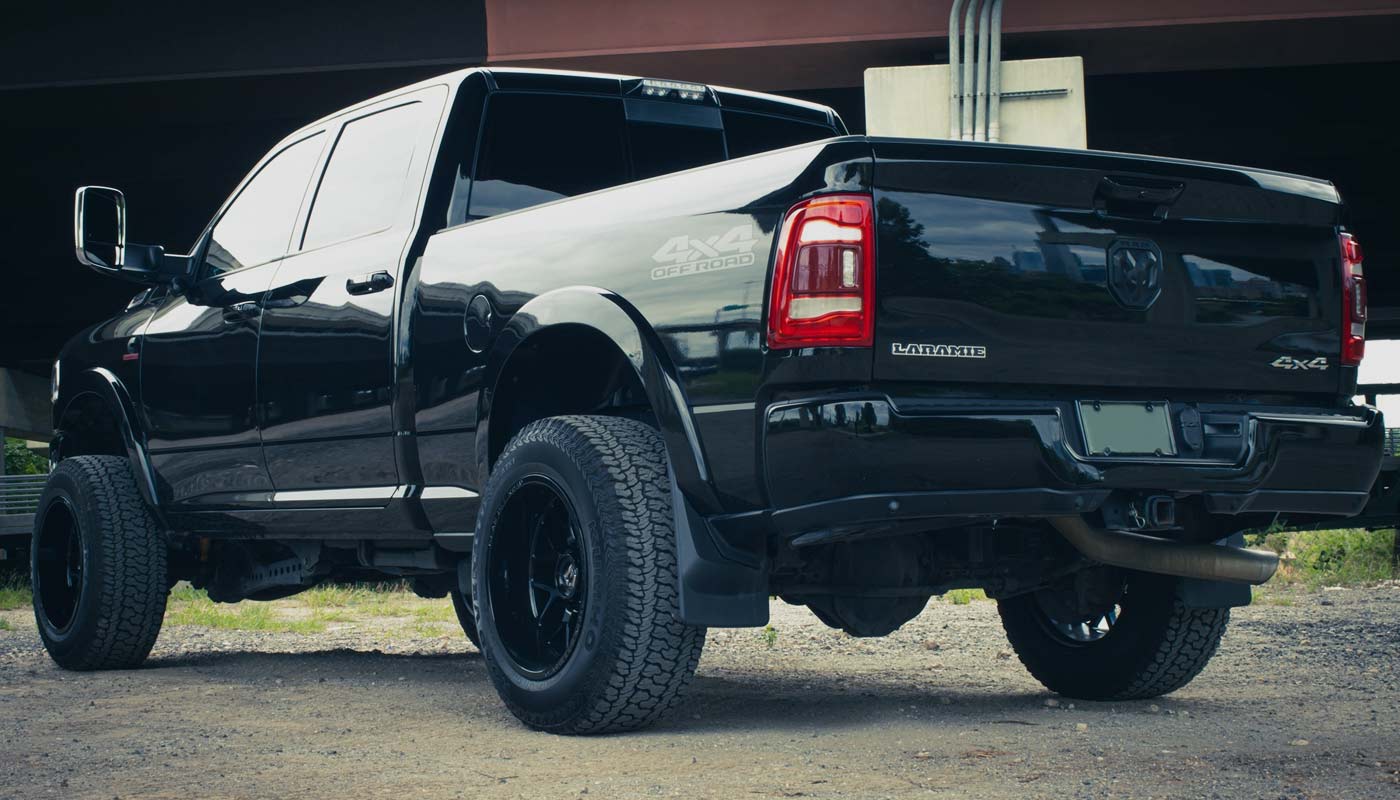How Are 4×4 Wheels Manufactured and What Materials Are Used?
4×4 wheels are manufactured using advanced materials like aluminum alloys that provide a strong yet lightweight structure. The process starts with careful material selection based on performance needs, followed by techniques such as casting or forging to create durable forms. Manufacturers emphasize quality control by rigorously testing for strength and reliability, ensuring the wheels perform well on rugged terrains. Innovations like advanced coatings and custom designs enhance both durability and vehicle personalization. By choosing the right materials and methods, manufacturers achieve superior performance. You’ll discover more about how these wheels rise to the challenge and boost your off-road experience.
Overview of 4×4 Wheel Manufacturing
Have you ever wondered how 4×4 wheels are made to withstand rugged terrains while providing ideal performance? The journey of wheel history reveals fascinating insights into their design evolution, showcasing the impressive range of 4wd wheels available today.
Initially, wheels were simple wooden discs, but as off-road vehicles emerged, the need for durability became essential. Manufacturers began exploring materials and designs that could handle the stresses of uneven surfaces.
Today, the manufacturing process combines advanced technology with traditional craftsmanship. Modern 4×4 wheels feature intricate designs that optimize strength and minimize weight, ensuring they can tackle tough conditions.
From computer-aided design to precision machining, each step reflects a commitment to performance. Understanding this evolution helps you appreciate how far wheel technology has come and why it’s vital for your off-road adventures.
Key Materials Used in Production
Several key materials are essential in the production of durable 4×4 wheels, each chosen for its unique properties that enhance performance and resilience on challenging terrains.
Aluminum alloys are a popular choice due to their lightweight nature and excellent strength-to-weight ratio. These alloys provide the perfect balance between durability and fuel efficiency, critical for off-road adventures.
Additionally, manufacturers pay close attention to tire compatibility, ensuring that the wheels work seamlessly with various tire types. This compatibility is essential for achieving ideal traction and stability on rugged surfaces.
The Manufacturing Process
When it comes to manufacturing 4×4 wheels, you’ll start by considering the right materials based on specific criteria.
You’ll then explore various forming techniques to shape those materials effectively.
Material Selection Criteria
Choosing the right materials for 4×4 wheels is vital to assure durability and performance under tough conditions. You need to take into account several factors to guarantee you’re making the best choice:
- Strength and weight: Adequate strength is key, while keeping the weight manageable for peak performance.
- Environmental impact: Opt for materials that minimize harm to the environment, promoting sustainability.
- Cost considerations: Balance quality and affordability to stay within budget without compromising performance.

Forming Techniques Used
After selecting the right materials, the next step in manufacturing 4×4 wheels involves employing various forming techniques to shape those materials into high-performance components.
Two primary methods are commonly used: casting processes and forging methods.
In casting processes, molten metal is poured into molds to create the desired wheel shape. This technique allows for intricate designs and can produce complex features.
On the other hand, forging methods involve shaping heated metal through compressive forces, enhancing the wheel’s strength and durability.
These techniques not only contribute to the wheel’s performance but also influence its weight and aesthetic appeal.
Quality Control Measures
To guarantee the highest standards in the manufacturing of 4×4 wheels, rigorous quality control measures are implemented at every stage of the production process.
You’ll find that these measures ascertain that the final product meets the required specifications and performance standards.
Key quality control aspects include:
- Thorough testing procedures to identify any defects before the wheels leave the factory.
- Regular durability assessments to confirm that the wheels can withstand rugged terrains and heavy loads.
- Continuous monitoring of materials used to ascertain they meet industry standards.
Quality Control Measures
Implementing rigorous quality control measures guarantees that each 4×4 wheel meets safety and performance standards.
Manufacturers conduct thorough durability testing, pushing the wheels to their limits under various conditions. This helps identify any weaknesses or potential failures before they reach the market.
Alongside durability testing, performance evaluation is vital. It verifies that every wheel performs at its best, whether on rugged terrain or smooth highways.
By using precise monitoring equipment and following established protocols, manufacturers can catch defects early in the process. Regular audits and inspections throughout production further reinforce these measures, providing you with confidence that your 4×4 wheels are built to last and withstand the toughest challenges.
Quality control is fundamental to your safety and satisfaction on the road.
Innovations in Wheel Design
Innovations in wheel design are transforming how you experience off-road adventures, enhancing both performance and aesthetics. You’ll find that modern wheels utilize cutting-edge materials and techniques to deliver superior functionality.
Lightweight alloys reduce overall weight, improving fuel efficiency and handling.
Advanced coatings protect against corrosion and wear, ensuring longevity in rugged conditions.
Custom designs allow for personalization, making your vehicle stand out on any terrain.
These advancements not only boost your vehicle’s capabilities but also elevate your driving experience.
With each new design, you’ll notice improved traction and stability, giving you the confidence to tackle challenging landscapes.
Embrace these innovations to fully enjoy your off-road journeys and enhance your vehicle’s performance.
Importance of Material Selection
Choosing the right materials for your 4×4 wheels is essential for maximizing performance and durability on tough terrains. The material you select directly influences how your wheels handle various conditions, from rocky landscapes to muddy trails. Stronger materials like aluminum and steel offer increased strength and resistance to impacts, enhancing your vehicle’s overall performance.
Additionally, you’ll want to keep environmental considerations in mind. Opting for sustainable materials can reduce your ecological footprint while still providing the durability you need.